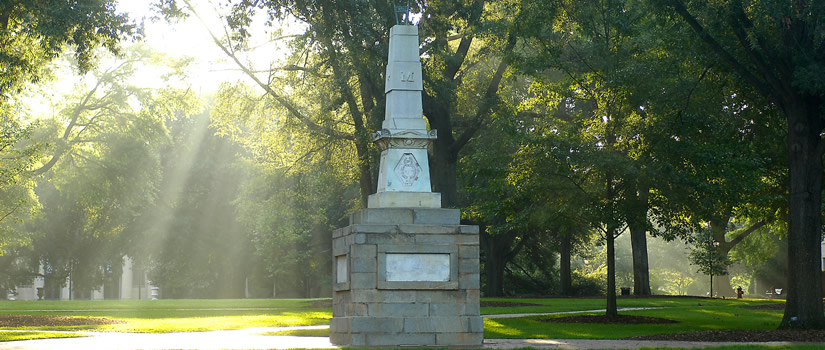Award Recipients 2016-2017
Mark Cooper, Film and Media History (FAMS 300)Mark Cooper will develop for online delivery, Film and Media History, which fulfills the Global Citizenship and Multicultural Understanding: Historical Thinking requirement in the Carolina Core. The course surveys the development of cinema and related mass media. Since its inception in 2009, it has been offered only in a face-to-face delivery mode at the Columbia campus. Through this grant, Cooper will convert it to a 100% asynchronous course scheduled to be offered online first during the summer of 2018. Through videos highlighting key issues and examples from the past two millennia of media history, he will provide students well beyond the Columbia campus with a rich learning experience that was previously available only to students in the traditional face-to-face course. In addition, on-campus students will enjoy self-paced, flexible access to a high quality Carolina Core course. |
Cooper |
Kathryn “Kay” Edwards, European History from Ancient Times to Mid-Seventeenth Century
|
Edwards |
Mark Minett, Introduction to Film and Media Studies (FAMS 240)Introduction to Film and Media Studies is a foundation course that meets the Aesthetic and Interpretive Understanding Carolina Core outcome. Introducing students to the study of moving image media, students in this course analyze and discuss numerous examples of film, television, and web-based media. As such, online delivery will enhance learner opportunities to access these materials. In addition, Dr. Minett will incorporate into this course digital tools for communication between students, enabling them to master course objectives, craft and deliver effective arguments, and engage with the mediums about which they are learning. A pre-requisite for Media Studies majors and popular course option for others, the online version of FAMS 240 will enable a broad range of students to access this unique course. |
Minett |
Carla Pfeffer, Sex and Gender (SOCY 301)Carla Pfeffer’s project will transform the popular Sociology of Sex Roles from a traditional face-to-face course to a 100% asynchronous online course. Concurrently, she will propose SOCY 301 for Carolina Core designation under the Global Citizenship and Multicultural Understanding: Social Sciences learning outcome. In this course, students develop an understanding of the ways in which sex, gender, race, class, sexuality, age, ability, and other factors shape the experiences and opportunities of both individuals and groups. Additionally, they analyze social and cultural factors that lead to social inequality and subsequent cultural change. The traditional version of Sociology of Sex Roles often fills to capacity within the first week of enrollment, frequently generating a waiting list of interested students. Offering this course in an online format will respond to student demand and provide additional opportunities for students to access this important course. |
Pfeffer |
